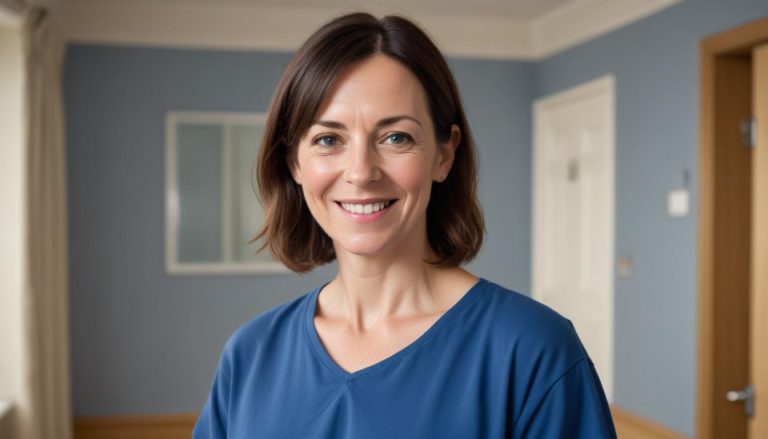Summary
- NHS Services: Not all NHS services are free; some, like prescriptions and dental treatments, may incur charges, and not everyone qualifies for free services.
- Social Care Funding: Unlike healthcare, social care is not fully government-funded. Individuals may need to contribute financially, and support is often means-tested.
- Broader Strain on Services: While an ageing population contributes to strain, rising obesity rates, chronic conditions, and mental health issues also significantly impact health and social care systems.
- Value of Care Workers: Care workers possess essential skills and play a pivotal role in health and social care, deserving recognition for their expertise and compassion.
Health and social care are essential sectors, affecting everyone at some stage of life. Despite their importance, there are many misconceptions surrounding these fields. Misunderstandings can lead to poor decision-making, increased stress, and sub-optimal care.
Let’s look into some common misconceptions and set the record straight.
Misconception 1: NHS Services are Free for Everyone
Many believe that all NHS services are free, but this isn’t entirely true. The NHS provides free healthcare at the point of use, but some services may incur costs. For instance:
- Prescription charges
- Dental treatments
- Eye tests and glasses
Not everyone is eligible for free services. For example, only certain groups are exempt from prescription charges, such as young people, the elderly, and those with specific medical conditions.
Misconception 2: Social Care is Fully Covered by the Government
Unlike healthcare, social care is not fully funded by the government. Many people assume that the same principle of free access applies, but that’s not the case. Social care services, like home help or residential care, often require financial contributions from the individual. Local authorities do provide some funds, but these are means-tested, meaning that your income and savings can affect the level of support you receive.
Misconception 3: An Ageing Population Causes the Biggest Strain
While an ageing population does add pressure to health and social care systems, it is not the only strain. Other factors include:
- Rising obesity rates
- Increase in chronic conditions like diabetes and heart disease
- Mental health issues
Focusing solely on the elderly overlooks the needs of other groups who also require significant resources and support.
Misconception 4: Mental Health is Less Important Than Physical Health
Mental health is often seen as less essential than physical health. This perception is outdated and harmful. Mental health conditions can be just as debilitating, if not more so, than physical ailments. Early intervention and regular support can make a massive difference in mental health outcomes. It’s really important to treat mental and physical health with equal seriousness.
Misconception 5: Only Hospitals Provide Healthcare
When people think of healthcare, they often think only of hospitals. However, most healthcare occurs outside hospitals, in community settings such as:
- GP surgeries
- Clinics
- Home care services
- Pharmacies
These community services provide essential support, helping to reduce the burden on hospitals and improve overall care quality.
Misconception 6: Social Care is Just for the Elderly
Social care is not just for elderly people. It also supports:
- Individuals with disabilities
- Those with mental health conditions
- Children in need of safeguarding
Social care services are diverse and cater to a wide range of needs, not just those associated with ageing.
Misconception 7: Private Healthcare is Always Better
There’s a belief that private healthcare is superior to public NHS services. While private healthcare can offer shorter waiting times and more comfortable facilities, it doesn’t necessarily mean better medical outcomes. The NHS boasts highly trained professionals and robust clinical standards. The level of clinical care can be equally high in both sectors.
Misconception 8: Technology Will Solve All Problems
Technology certainly has the potential to revolutionise health and social care, but it’s not a panacea. Digital health records, telemedicine, and AI-driven diagnostics are exciting developments. However, they also come with challenges, such as:
- High implementation costs
- Need for staff training
- Issues of data privacy and security
Relying solely on technology can overlook the importance of human interaction and judgement in providing compassionate care.
Misconception 9: Self-Diagnosis is Sufficient with Internet Resources
Many people turn to the internet to diagnose their health issues. While online resources can be helpful, they can also be misleading or incorrect. Self-diagnosis can delay proper treatment and sometimes exacerbate conditions. It is essential to seek professional medical advice rather than relying solely on internet searches.
Misconception 10: Preventative Care Isn’t Cost-Effective
Some think that investing in preventative care is a waste of resources. However, preventative care can save significant amounts of money in the long run. By focusing on early detection and intervention, we can avoid expensive and extensive treatments down the line. Preventative measures include:
- Vaccinations
- Regular check-ups
- Lifestyle education
These steps can help maintain better overall public health.
Misconception 11: Care Workers are Low-Skilled
Care workers are sometimes perceived as low-skilled, but this couldn’t be further from the truth. Care work requires a range of skills, including:
- Medical knowledge
- Communication skills
- Emotional intelligence
- Problem-solving abilities
Care workers play a really important role in supporting the health and well-being of individuals and should be recognised and valued for their expertise and compassion.
Final Thoughts
Clearing up these misconceptions is essential for improving health and social care in the UK. We must:
- Recognise the value of both NHS and social care services
- Understand the need for various funding sources
- Appreciate the importance of mental health
- Challenge outdated views on the efficacy of care provision
By educating ourselves, we can better navigate the healthcare system, advocate for necessary changes, and ultimately receive the best care possible.
Subscribe to Newsletter
Get the latest news and updates from Care Learning and be first to know about our free courses when they launch.






